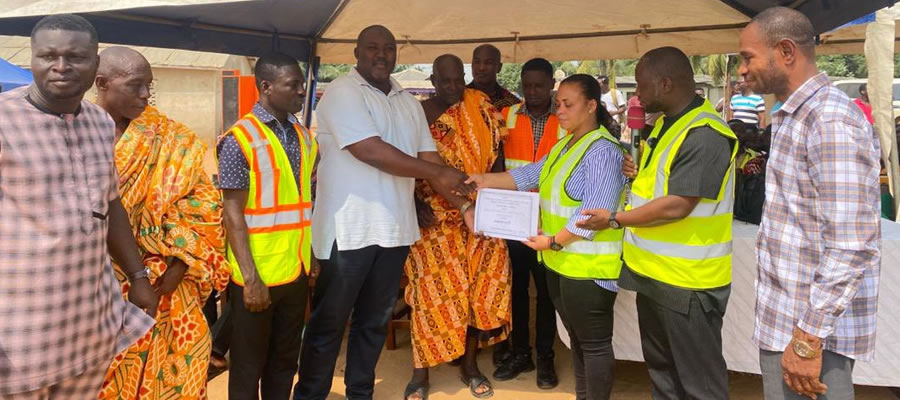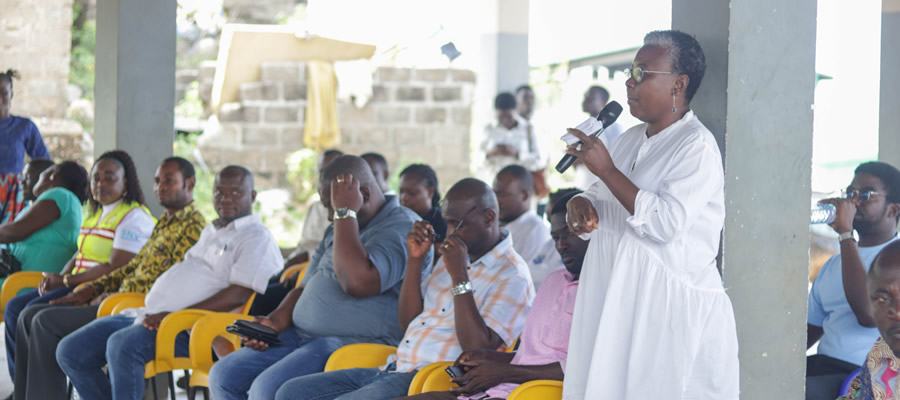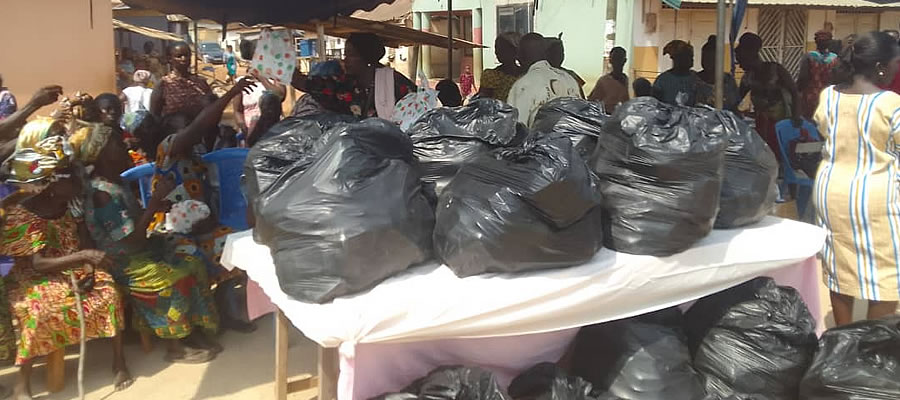

Development Goals and Objectives
Localization of Millennium Development Goals
In the millennium Declaration in 2000, all member states of United Nations committed themselves to the Millennium Development Goals to sustain development and eliminate poverty. The eight goals and their targets are aimed at eradication of poverty, achieving universal primary education, empowering women, reducing child mortality, improving material health, fighting AIDS, malaria and other diseases, ensuring environmental sustainability and forgoing new partnerships for development.
These goals were identified as the roadmap for meeting the commitments of the millennium declaration and have been internationally accepted as a common global development framework. These goals have been localized in the Ahanta West District to give a true reflection of the global goals. This in fact will assist the district to demystify and be inspired to implement activities at the local level aimed at achieving the Millennium Development Goals.
It is strongly believed that when MDGs are localized it will create greater awareness, enable meaningful involvement of local communities in shaping the direction and outcome of their local government services aimed at reducing poverty. Equally important reasons for localizing MDGs include improving institutional performance in service delivery as well as ensuring regular monitoring and evaluation of progress.
Monitoring And Evaluation
Monitoring and Evaluation create the information base required for steering programmes and projections implementation. Monitoring which is a continuous process assesses the progress of implementations of projects and programmes.
It helps to identify problems, deviations from predetermined objectives and establishes the reasons for the failure to attain the intended results. Evaluation which is the assessment of the impact of a project on the people would have positive impact on the people of the district after the planned period.
In order to achieve the objectives or intended results of the adopted strategies, the Ahanta West District Assembly in consonance with its mission of "existing to improve the quality of lives of the people in the District by efficiently and effective mobilizing its human material and financial resources with its development partners for socio-economic development and growth " has undertaken to commit significant amount of human, material and financial resources to the implementation of 2006 to 2009 MEDIUM TERM DEVELOPMENT PLAN for the District.
In collaboration with all relevant stakeholders (Assembly Members, Chiefs, Area Councilors, Unit Committee Members, NGO’s, CSO’s, Associations and Groups etc) the District Planning Co-ordinating Unit (Projects Management Team) will on behalf of the District Assembly be responsible for the day-to-day implementation, monitoring and evaluation of all projects and programmes.
This will ensure that agreed actions are taken within the specified time frames to improve the quality of life and create wealth as well as generate employment for the people in the District. For the District Planning Co-ordinating Unit (DPCU) to perform efficiently and effectively, it must be adequately resourced and equipped with requisite logistics.’
The DPCU will also uphold the principle of transparency, accountability and achieve value for money.It can also be stated that the planned activities may be subject to review when the need arises since some of the programmes and projects may outlive their usefulness.
The consultative and participatory nature of the plan preparation process will mean that all relevant stakeholders and development partners will been very keen and show commitment in the implementation of the plan. The document should be seen as the Bible of the people to ensure that all planned strategies or interventions are strictly adhered to. This will help to improve the quality of lives of the people by ensuring wealth creation and improving the living standards of the people in the District.
To achieve the objectives set up the Medium Term Development Plan of the Ahanta West District, adequate resources must be mobilized both internally and externally to fund planned activities between 2006 and 2009.
Development Problems
A Summary of Key Development Problems or GAPS
Human Resource Development and Basic Services
The performance by students at Basic Education Certificate Examination (B.E.C.E) is poor especially in the deprived communities including Cape Three Points, Prince Aketekyi
Date Created : 11/16/2017 6:30:18 AM









 facebook
facebook
 X
X
 Youtube
Youtube
 instagram
instagram
 +233 593 831 280
+233 593 831 280 0800 430 430
0800 430 430 GPS: GE-231-4383
GPS: GE-231-4383 info@ghanadistricts.com
info@ghanadistricts.com Box GP1044, Accra, Ghana
Box GP1044, Accra, Ghana